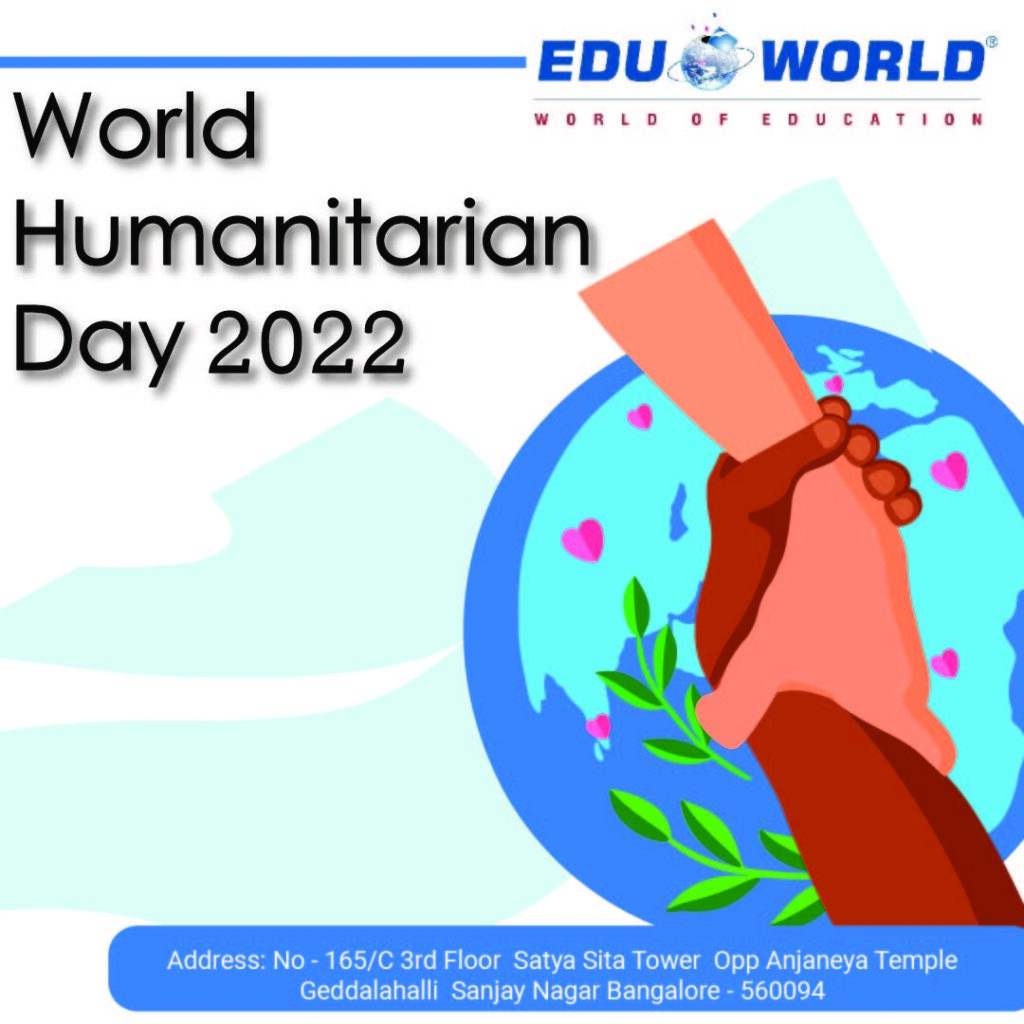On 19th August 2003, a bomb attack on the Canal Hotel in Baghdad, Iraq killed 22 humanitarian aid workers including the UN Special Representative of the Secretary- General for Iraq, Sergio Vieira de Mello. Five years later, the General Assembly adopted a resolution designating 19th August as World Humanitarian Day (WHD). World Humanitarian Day takes place every year on 19th August to recognise aid workers who risk their lives in humanitarian service. Every day humanitarian air workers help millions of people regardless of who and where they are. It is important to recognise the challenges faced across the world and share humanitarian workers’’ experiences so as to better inform future humanitarian responses. The RSIS World Humanitarian Day event aims to raise public awareness of the work undertaken by humanitarian organisations and the various challenges they face and brings together the many different types of responders who assist in complex emergencies to facilitate the exchange of ideas, insights and experiences from the field with different stakeholders and the public. Since the end of the Cold War, traditional warfare between states has decreased. However, the nature of warfare is changing with a rise in the number of non-state violent actors such as rebel and guerrilla groups. Wars today are often fought between state and non-state actors with little regard for international humanitarian principles. This changing nature of warfare has resulted in a deteriorating security environment not only for humanitarian workers in the past five years was in 2013, when there were 475 victims of 265 attacks. The attacks on aid workers such as violent or sexual assaults, bombing, shootings and kidnappings dropped in 2014, when there were 329 victims of 190 attacks. In the second consecutive year that showed a lower global casualty toll for aid workers, 2015 logged 148 incidents in 25 countries, affecting 287 aid workers, representing 22% few attacks compared to 2014 and 42 fewer victims. In 2015, the five countries in which most attacks on aid workers occurred were Afghanistan, South Sudan, Somalia, Syria and Yemen. All these countries are undergoing violent conflicts which shows that respect is diminishing for international Humanitarian Law which is applicable in armed conflicts, and humanitarian principles. In conflict or violence situations, aid workers have become targets for all parties to a conflict, despite their neutrality and impartiality. There is a need to revere this loss of respect for international humanitarian law. International humanitarian law provides essential protection for those directly affected by armed conflict, if it is respected by the parties to that conflict. In addition, the principles of humanitarian actions, such as neutrality, impartiality and independence provide protection and are pivotal for human security. All parties to conflict need to uphold international humanitarian law, respect the laws of war and the principles of humanitarianism. It is therefore essential that world leaders commit to protecting aid workers and upholding international humanitarian principles. Each year, WHD focuses on a theme, bringing together partners from across the humanitarian system to advocate for the survival, well-being and dignity of people affected by crises and for the safety and security of aid workers. Edu world also highlights the immediate human cost of the climate crisis by pressuring world leaders to take meaningful climate action for the world’s most vulnerable people. Also, our institution beliefs in serving humanity and helping the needy. It does not cost a penny to help others and give a comfort to the suffering ones. So let us grow our future generation with humanitarian values and spread the message of humanity to the world like our forefathers did.




